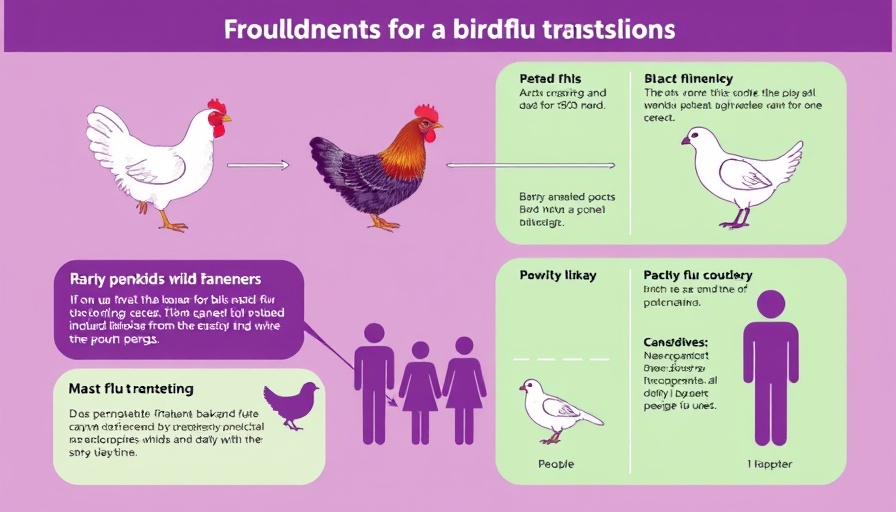
Bird Flu Signals a Call for Stricter Food Safety Measures
The recent outbreak of bird flu cases across New Jersey serves as a critical reminder: the intersection of animal welfare, public health, and effective legislation is more important than ever. Trisha Choudhary’s call to action is not just for residents of Hopewell Valley, but for the entire country. With the proposed Food Security and Farm Protection Act on the table, the urgency of addressing food safety laws cannot be overstated.
Industrial Agriculture: A Recipe for Risk
The avian flu outbreak starkly illustrates the risks posed by prioritizing profit over safety in industrial agriculture. This trend not only endangers animal populations but also highlights vulnerabilities in human health. Current poultry farming practices, where animals live in cramped, unsanitary conditions, fuel diseases that can spill over to human populations. Such conditions underline the necessity for robust state regulations that promote humane treatment and food safety.
Potential Consequences of Weaker Standards
If the Food Security and Farm Protection Act passes, states could lose the ability to adopt stricter food safety measures, potentially lowering the overall safety and quality of the food supply. According to experts, these weakened protections could lead to increased pesticide use, diminished water quality, and a rise in emissions. Consequently, the risk of future outbreaks like bird flu could surge, jeopardizing both public health and environmental integrity.
A Unified Demand for Change
Choudhary’s letter epitomizes a collective call for legislative accountability, urging New Jersey residents—and indeed citizens nationwide—to advocate for stronger food safety laws. Food choices shouldn't lead to moral dilemmas or safety concerns among consumers. It’s time to rekindle public interest in the standards that govern our food system and support petitions that demand transparency and enforce stricter regulations.
Take Action Now to Influence Food Safety Laws
As citizens, we play a crucial role in shaping the legislation that dictates food safety standards. Engaging with lawmakers and advocating for humane and healthy farming practices should be seen as an obligation. Now is the time for informed citizens to voice their concerns and ensure that our food systems align with values of compassion and health.
 Add Row
Add Row  Add
Add 




Write A Comment